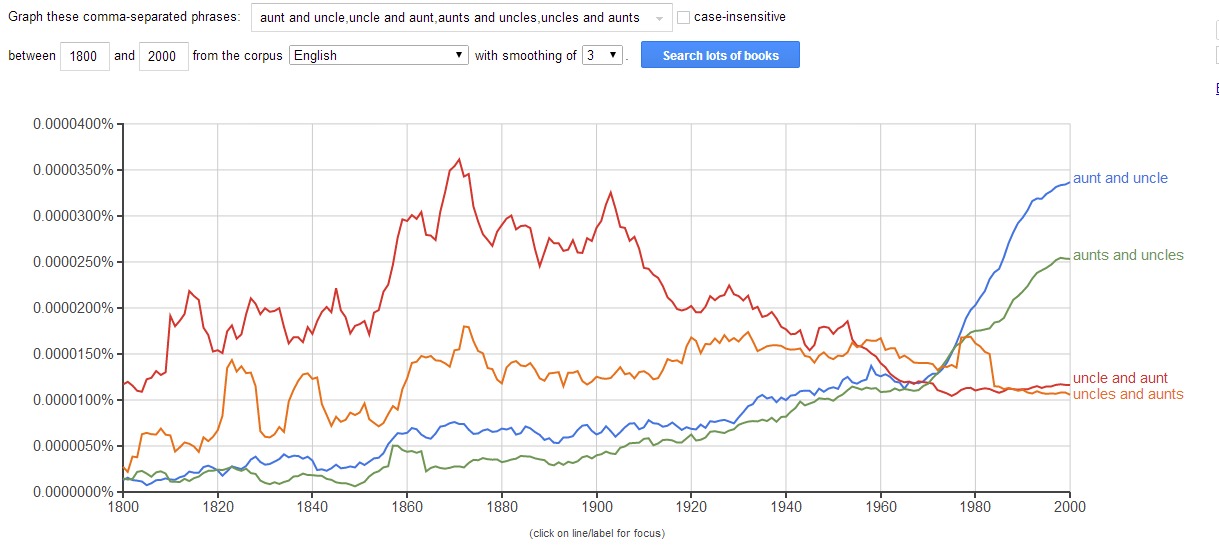Does order matter when writing a sentence including aunt and uncle?
Rise to the top 3% as a developer or hire one of them at Toptal: https://topt.al/25cXVn
--------------------------------------------------
Music by Eric Matyas
https://www.soundimage.org
Track title: Puzzle Game 5 Looping
--
Chapters
00:00 Does Order Matter When Writing A Sentence Including Aunt And Uncle?
00:38 Answer 1 Score 8
01:31 Accepted Answer Score 16
01:46 Answer 3 Score 19
02:14 Answer 4 Score 3
03:03 Thank you
--
Full question
https://english.stackexchange.com/questi...
--
Content licensed under CC BY-SA
https://meta.stackexchange.com/help/lice...
--
Tags
#wordusage #wordorder #coordinatingconjunctions #listorder
#avk47
ANSWER 1
Score 19
I don't think there is any rule, but the normal pattern tends to be that when we have a common pair of words, the word with fewer syllables goes first.
For example, we say aunt & uncle, men & women, sons & daughters, and ladies & gentlemen.
For boys and girls or girls and boys it doesn't matter as both words only have one syllable.
It feels weird for me to say uncle and aunt, women and men or gentlemen and ladies.
ACCEPTED ANSWER
Score 16
You can write "my aunt and uncle" or "my uncle and aunt" and the meaning is exactly the same. However, according to Google Books the trend is definitely towards "aunt and uncle"

ANSWER 3
Score 8
The DuoLingo translation is grammatically correct and faithful to the literal meaning of the Spanish text, but it doesn't use the most usual collocation in English to describe the relatives. Rather than "My uncle and my aunt", it would be better to say "My uncle and aunt", or (most idiomatic of all), "My aunt and uncle" -- even though the last version reverses the order of the relatives in the source text.
The implication of getting marked down for the idiomaticity of your translation is that DuoLingo doesn't consider good style to be a criterion of acceptability; yet if I were translating a novel with the aim of making the English read as fluently as possible, I would almost certainly render that phrase (as you did) with "my aunt and uncle" rather than "my uncle and my aunt".
In my view, DuoLingo has fallen short here.
ANSWER 4
Score 3
"My aunt and uncle" is more common in English. In fact I've noticed that most "couple" relationships put the female first: aunt and uncle, mum and dad, mother and father, grandma and grandad, etc. Husband and wife is the only exception I can think of offhand - and that's slightly different because it's describing their relationship to each other, not the relationship to a third party.
Personally, I think the reason that they dinged you was that the order in the Spanish sentence you gave is "uncle and aunt" and they either made a deliberate choice to put it this way (so they knew you weren't getting tío and tía mixed up) or the person who translated it didn't consider reversing the order - because, after all, "uncle and aunt" doesn't sound wrong; it's only when you compare it to "aunt and uncle" that you realise the latter sounds more natural.